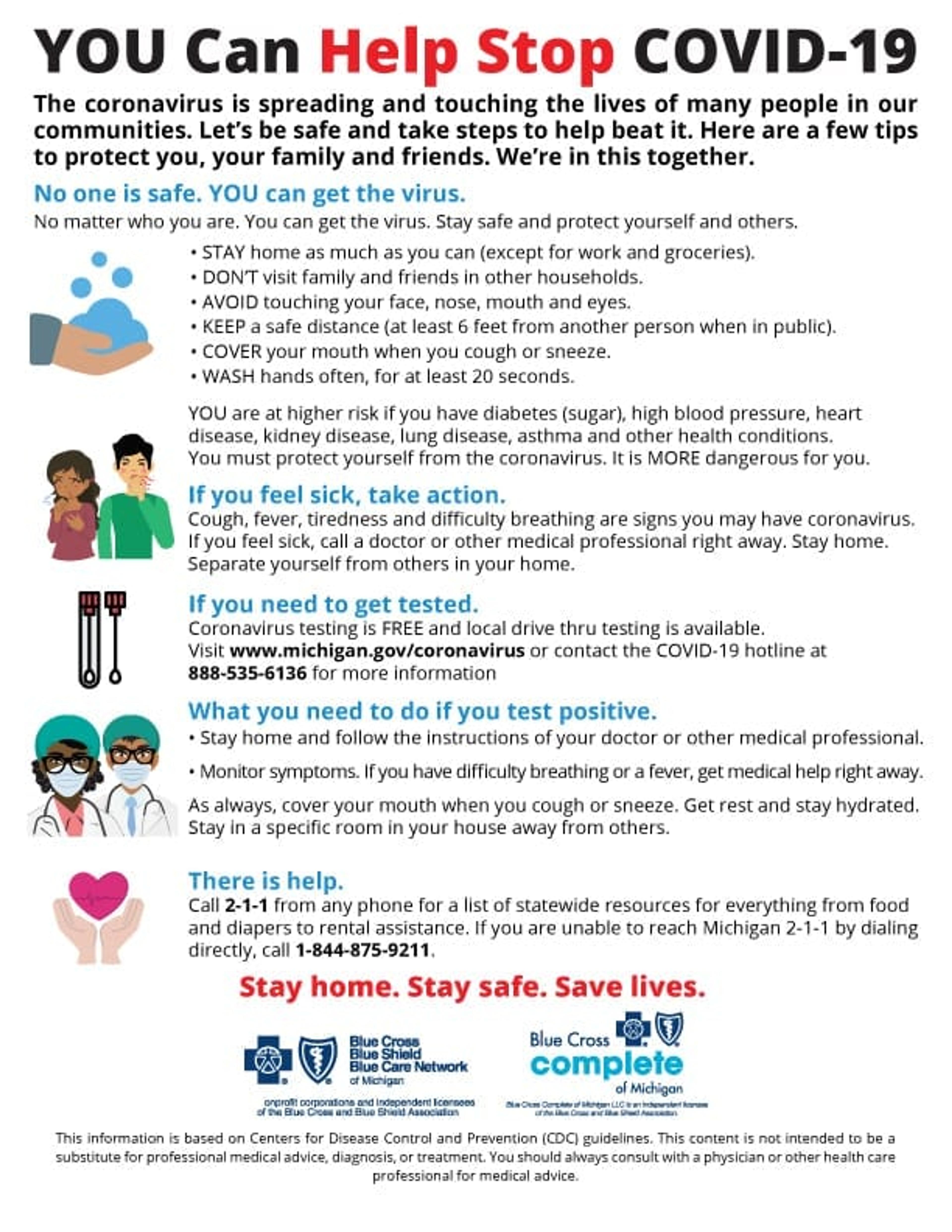Busting Coronavirus Myths
Amy Barczy
| 3 min read
Amy Barczy is a former brand journalist who authored content at Blue Cross Blue Shield of Michigan. Prior to her time at Blue Cross from 2019-2024, she was a statewide news reporter for MLive.com. She has a decade of storytelling experience in local news media markets including Lansing, Grand Rapids, Holland, Ann Arbor and Port Huron.

As the new coronavirus has spread throughout Michigan, so has misinformation. It’s important to know the facts from health officials so you can make the right decisions for yourself and your family. The new coronavirus causes a disease called COVID-19. Everyone can get the virus, no matter who you are. Here are some common myths about the coronavirus. MYTH: The coronavirus is just a bad flu. FACT: The coronavirus is much different from the flu. The coronavirus has made more people sick in a shorter time frame than the flu usually does every year. While there is a flu vaccine, there is no vaccine for coronavirus. The symptoms of COVID-19 include fever, cough, shortness of breath or difficulty breathing, chills, repeated shaking with chills, muscle pain, headache, sore throat and new loss of taste or smell. In rare cases, gastrointestinal symptoms can also happen. If you or someone you know are having an increasingly hard time breathing, persistent pain or pressure in your chest, confusion or a hard time waking up, or bluish lips or face, these are emergency warning signs. Seek medical help right away. MYTH: COVID-19 only affects old people. FACT: Anyone of any age can get coronavirus, no matter who you are. Some people, however, are at a higher risk of severe illness from the coronavirus due to health conditions they already have, including:
- High blood pressure
- Diabetes (sugar)
- Chronic lung disease or moderate to severe asthma
- Serious heart conditions
- Compromised immune systems
- Severe obesity (body mass index [BMI] of 40 or higher)
- Chronic kidney disease and undergoing dialysis
- Liver disease
MYTH: I’m not sick, so I don’t have the coronavirus. FACT: Some people may be carrying the virus but show no symptoms. They also may never get sick enough to go to the hospital. That’s why it’s important to stay at least six feet away from other people while in public places like the grocery store and to wear a face covering like a mask or bandana so that you don’t unknowingly pass the virus on to other people. MYTH: There’s nothing I can do to stop COVID-19. FACT: You can take steps to stay safe and protect others in your everyday activities. Here are some tips:
- Stay home as much as you can, except if you must go to work or to get groceries
- Don’t visit family and friends at their homes
- Avoid touching your face, nose, mouth and eyes
- Keep a safe distance of at least six feet from other people when in public
- Wear a face covering or a mask in public
- Cover your mouth when you cough or sneeze
- Regularly wash your hands with soap and water for at least 20 seconds, or use hand sanitizer often
MYTH: A coronavirus test would cost me too much money. FACT: Testing for the coronavirus in some cases is free. There are local options for drive-through testing available. Visit www.michigan.gov/coronavirus or call the state’s COVID-19 hotline at 888-535-6136 to find out more. MYTH: Visiting family is OK during the pandemic. FACT: Guidelines from the U.S. Centers for Disease Control and Prevention (CDC) say social visits, including those to family, should be avoided in order to keep both them and you safe and healthy. It’s possible you or the family you want to visit has COVID-19 and may not know it, and then unknowingly pass it on. By staying home, you keep everyone safe and healthy. Stay connected with family and friends through phone calls, video calls and letters.

More from MIBluesPerspectives:
- Mobile Coronavirus Testing Event Helps 304 Detroiters
- Blue Cross Works to Address Social Disparities that Impact Health Amid Pandemic
- COVID-19: How to Wear a Mask and Gloves the Right Way
Photo credit: smartboy10





